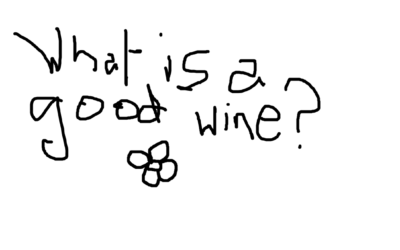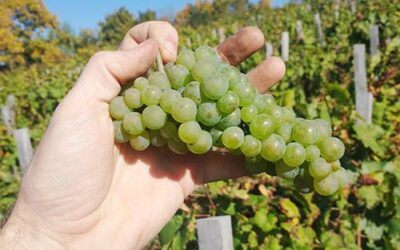Semantics: Winemaker vs. Vintner
In English, what do you call someone who makes wine? Easy, “winemaker;” and darn it, it’s been that way for centuries since Middle English so don’t go complaining…
Ah, there’s a peccadillo with your Pinot, you say? “Winemaker” has unsavory connotations?
“Winemaker” as a term reaches back into the 14th century, according to Merriam-Webster’s on-line dictionary, and Wictionary refers to the era’s spelling as “wynmaker.” South African producers use this archaic spelling, but if that comes from an historic, linguistic connection between Dutch and English, or if it’s S.A.’s modern adaption of the English term, I don’t know; and, I think we’re already getting into the weeds on this subject when I’m writing about South African etymology in a blog about Central European wines.
Some people (myself to a degree) dislike the term “winemaker.” It implies a person who creates a vino the same way someone makes a chair or bakes a cake; it implies domination, sovereignty, control– at best, a recipe. In our minds’ eye, “winemaker” says, “You shall taste of strawberries, or you shall get the cultured yeast!” “Or more darkly, “It takes the color from its skins, or else it gets the hose again.”
Many people propose “vintner” as a replacement. Simultaneously crisper and softer, “vintner” sounds closer to France’s vigneron, that Romance and romantic word defined as a person who grows vines and sells wines. The Czech word, vinař, has a similar definition. Missing in those definitions, and in most European languages, according to The Oxford Companion to Wine, is the idea of making the wine, simply because people have perceived wine to make itself[1]. A person harvested their grapes, crushed them, placed them in a container. Fermentation happened. Wine happened– A fruity sort of magic. Huzzah.
Historically, however, “vintner” means wine-vendor. Its usage arises, like so much of the English-speaking world’s wine culture, from the Late-Medieval mercantile relationship between Bordeaux and London[2]. The connection between these lands involves Queen Eleanor of Aquitaine’s 12th-century dowry of, well, Aquitaine (and its vineyards) to England’s King Henry II. But again, I am writing about Central European wines and not commercial contracts and treaties that shaped everything from US president Thomas Jefferson’s palate to Russian Orthodox liturgical language. (That said, Eleanor and Henry’s son, King Richard Lionheart, apparently spent some time imprisoned in the Wachau Valley town of Dürnstein. That’s on the Danube in Austria; and that, people, is Central Europe).
Ahem… “Vintner” referred to the traders and vendors of wine between London and the vine-regions associated with Bordeaux and its nearby rivals. These men played important roles in London politics, and a resulting organization, the Vintners’ Company, continues to sway oenological tastes around the globe.
Where “vintner” makes the switch to its modern-day usage, as wine producer, I am not sure; but the Oxford Companion does mention North Americans use it more often in this ahistorical form. I don’t want to belabor the point that we US citizens sometimes mangle the glamour and savor of our island neighbor’s language and history, but maybe we US Americans use it because it sounds fancier than, “I’m a winemaker, dude!”
“Winemaker” is more historically accurate, then, than “vintner,” but the compunctions remain. “Vintner’s” sound appears more able to carry the traditional and mysterious experience of growing vines, granting crushed grapes a consecrated space to transmogrify into wine, and storing this mystical liquid for oneself and / or for sale. Writing this blog, I’ll use both. But I’ll continue to use “vintner,” for someone who really accompanies the vines, grapes and wines on the journey from field to a happy glass.*
[1] “The Oxford Companion to Wine, 5th edition (Oxford: Oxford University Press, 2023), s.v. “winemaker.”
2 ““The Oxford Companion to Wine, 5th edition (Oxford: Oxford University Press, 2023), s.v. “vintner.”


0 Comments